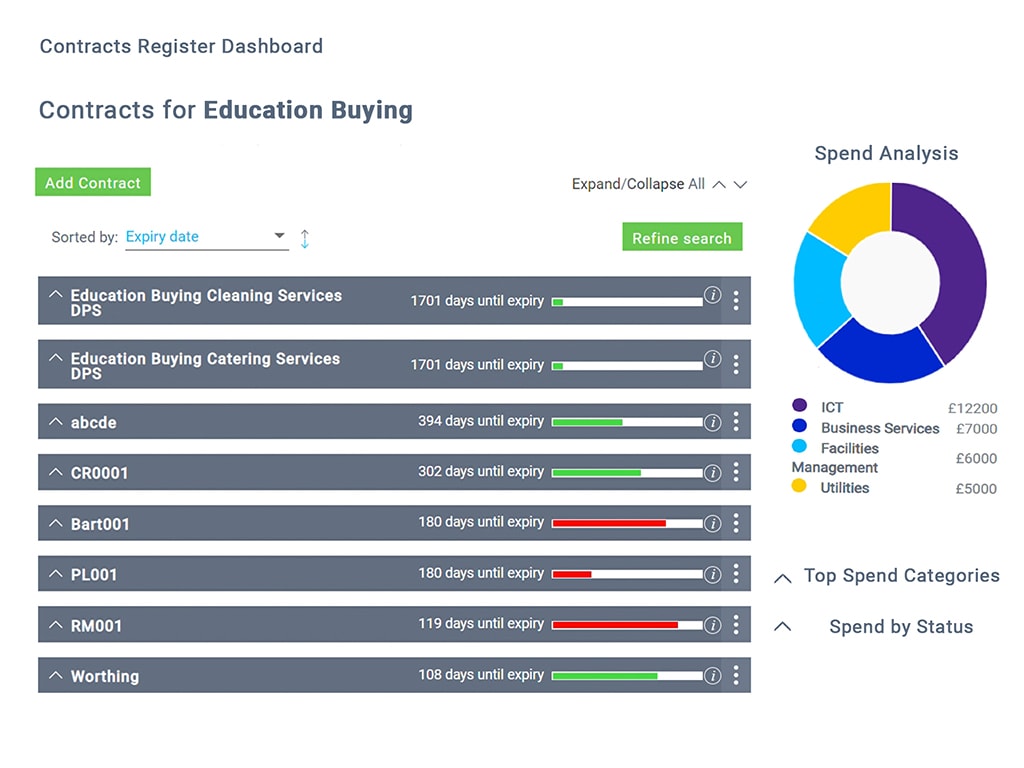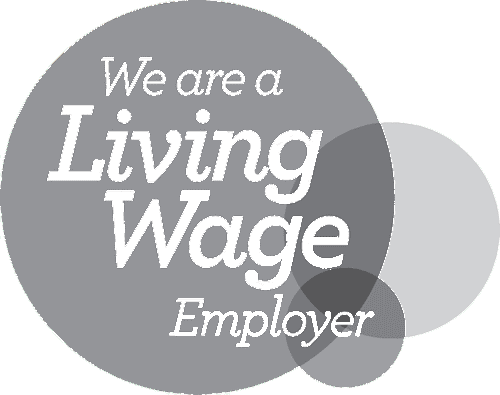Schools and MATs beware, a new procurement law is on its way, and it will affect you
Recently the Government released a new ‘National Procurement Policy Statement’. Here’s what our procurement expert, Ben McGirr commented in a recent webinar about the importance of good contract management:
“This is particularly timely at the moment. In June, the government published something called the National Procurement Policy Statement and one of those statements were that contracting authorities – and this includes schools and MATS – should have processes and governance in place to determine and manage their most important contracts.” Ben McGirr, Category Specialist, Education Buying.
From reading through this National Procurement Policy Statement it seems clear that a new procurement law will be in place likely in 2022 and, as Ben mentioned, the policy specifically states all contracting authorities – schools and MATS included – to be ready for this to be put into place.
National Procurement Policy Statement updates
It also mentions that contracting authorities should have “…the right organisational capability and capacity with regard to the procurement skills and resources required.” This, coupled with the soon to be new need for capacity to manage contracts and update internal policies, shows us that the Government wants to focus on the strength of well-planned and well-structured procurement.
The Policy also states to “…consider benchmarking themselves annually against relevant commercial and procurement operating standards…” Benchmarking is a vital process, without it, your contracts will most assuredly stop meeting their savings targets.
This news comes as a parallel to Northern Ireland’s new Social Value policy that was recently announced, that sees all public procurement having mandatory scoring on social value for all tenders in Northern Ireland. This change is to be implemented June 2022.
Fortunately, this is not something you will need to do alone, we can help!
As our procurement expert states in the above video, contracting authorities will need a process and governance to determine and manage their most important contracts.
But why are these new changes being implemented now? In broad terms, the British Government want to ensure public procurement in schools is encompassing social value and compliant, but that they also the right tools to carry out effective procurement.
Let’s explore why.
What is Social Value?
Social value seems like a vague goal to now be aiming for, however as previously mentioned, this renewed focus is applicable for all new tenders within any school or MAT. So its inclusion is vital for the tender process.
Importantly, social value is an act that should be considered at the pre-procurement stage. If it is considered further along the procurement process, it invalidates your previous stages as they would not have been considered for their impact on social value.
This document states that social value is:
- What is proposed to be procured might improve the economic, social and environmental wellbeing of the relevant area.
- How, in conducting the process of procurement, it might act with a view to securing that improvement.
- Whether to undertake consultation on the above points.
From this, we can understand that social value focuses on three main aspects:
- Social
- Economic
- Environmental
Social value is not necessarily a metric that can be considered or counted numerically. It is the process of determining how much your planned procurement can actively benefit the community around its location.
Why is there a new focus on social value?
Social value is unique to the procurement process, while most procurement contracts see out their lifespan and that’s the end of it. Social value ensures that these contracts have a long-lasting impact on the community.
Whether that be through:
- Creating new businesses, jobs or skills.
- Tackling climate change and reducing waste.
- Improving supplier diversity, innovation and resilience.
These impacts provide long-term benefits to an area and is exactly why the Government is putting renewed efforts towards it now.
Its benefits are felt by you as well, not just the surrounding community. By diversifying suppliers and the supply landscape, you can help develop innovations in public services. Essentially, the more schools request social value within public procurement, the more effectively the supply market will adapt and respond.
It’s a win-win for you and the surrounding community!

How can you develop your Social Value?
The best way you can develop your social value is through focusing on it at the pre-procurement stage and making sure your carry that focus throughout the entire procurement lifecycle.
By doing this, you can be sure that all three key points of social value that we mentioned previously are accounted for. Social value does not need to be a new, radical aspect of the procurement process, it’s a process that builds upon your own procurement knowledge. To help, the UK Government created a quick reference table to help you with your own social value planning. Please note: The level of social value should always be relevant and proportionate to the contract in question.
Another way you can further develop your social value is by evaluating it in tenders However, we understand that schools and MATs will often have a wide, varied range of both simple and complex contracts in place at any given time. To combat this, the Government mentions that a purchasing body can help with this task.
That’s where we come in.
How Education Buying can help
Education Buying can provide social value guides per contract type and our products all have social value embedded into them from the get-go, ensuring you get the most from your procurement contracts. We cover three areas: Social, Environmental, Economic. These areas can be specific to the contract type, or are more general, including initiatives such as:
- Facilitation of gardens/growing
- Promotion of fitness
- Promotion of cooking
- Charitable Initiatives
- Community Engagement
- Promotion of Healthy Eating
- Minimising packaging/waste
- Support Recycling
- Reduction in energy
- Use of environmentally friendly chemicals
- Environmental Policy in place
- Business Skills for children
- Support Local Suppliers
- Local Recruitment
- Work Experience/Apprentices
- Staff Training
- Pays the living wage
That’s not all though, our host of procurement experts will also be able to provide in-depth consultancy as well as running pre-market engagement for you to help with vital social value questions in your upcoming tenders.
Remember, these changes are to be implemented on all new tenders! So contact us and get on top of this before it’s too late.
How can you develop your Social Value?
With the most recent National Procurement Policy Statement, all contracting authorities – schools and MATs included – were told to focus on how capable you are of maintaining your most complex and important contracts.
This came to light as a part of the social value topic that we touched on earlier.
If contracting authorities do not have the process and governance in place to determine and manage their most important contracts, the greater the loss in cost, time and effort is felt through mismanagement. This impacts all aspects of the contract’s value, not just social.
Typically, the greater the complexity, cost and risk, the more important a project will be. This also means a more robust and rigorous process is required to successfully set up, procure and manage contracts relating to it.
In a post-Brexit UK, policies were shaken up and changed a little, one of the biggest aspects was the change from OJEU (Official Journal of the European Community) to the FTS (Find a Tender Service) that the UK Government created. Any mentions of the OJEU in any of your policies, in relation to new tenders, are out of date and will need to change immediately. This is something we can do for you.
What are the Key Stages of Commercial Delivery?
The National Procurement Policy Statement highlighted a number of key stages of the commercial delivery that also add to the new social value focus of public procurement. As the document states, not all of these stages are applicable to every contract, these are in place to focus on more complex projects that a contracting authority may want or need.
These are:
- Publication of Procurement Pipelines (applicable to large MATs only).
- Contracting authorities should publish annual pipelines for their procurement plans and commercial activity, looking ahead 18 months minimum, ideally three to five years.
- Market health and Capability Assessments.
- Projects should undergo market assessments to determine the health of the market in question as well as consider how the commercial strategy
- Project Validation Review.
- Complex outsourcing projects should go through independent review before any public commitment is made to benefit from the cross-sector expertise in assuring deliverability, affordability and value for money.
- Risk Allocation.
- This should be subject scrutiny before going to market, with meaningful market engagement.
- Pricing and Payment Mechanism.
- This approach goes hand in hand with risk allocation and should be considered and scrutinised to ensure it incentivises the desired behaviours or outcomes for you.
- Assessing the Economic and Financial standing of Suppliers.
- When outsourcing, you should include a proportionate assessment of the risk of a supplier going out of business during the life of a contract.
- Resolution Planning.
- Suppliers of contracts that you consider as critical service contracts to the public sector should provide corporate resolution planning information so that the contracting authority is prepared for any risk to the continuity of service delivery.
Again, these steps are not for every tender process, these are for your most complex and important contracts. If you find this to be a struggle, the National Procurement Policy statement also brings up that using a purchasing body is a solution for the renewed interest in contract management that will be necessary in the coming months.
Which is where we come in!
What are some ways you can update your procurement planning?
Something the Government (and us at Education Buying) recommend is regular benchmarking of your procurement and commercial capability.
Benchmarking is a vital process that will guarantee you find (or confirm that you are already receiving) savings in your contracts, especially your medium-high value ones. The process involves comparing your contract spending patterns and services against other contracts of the same variety.
From this you can then determine whether you would want to follow those other contract savings patterns and start saving as well. Having a good understanding of the market trends can only better impact your savings in the long run.
Another way to streamline and structure your contract management would be through using a contracts register.
A contracts register is a full and comprehensive list of all the contracts or purchase arrangements that you are signed up to. It will also allow you to fulfil some of the new policy recommendations set out by the government.
Some of the main features include:
- Benchmarking your contracts with other deals
- Provide an auditable record of your contracts
- Provide a picture of spends not covered by audits
- Forewarn you of which contracts are due to expire

Education Buying has a free contracts register where you can add all your school contracts or purchase arrangements.
- Offers easy access to all your contract information in one place
- Forewarns you of which contracts are due to end
- Allows you lead time to consider alternative suppliers - e.g. if you know a contract expires in April, you can start looking at alternative deals in January
- Provides an auditable record of your contracts
- Offers ability to benchmark your contracts with other deals
- Gives you a picture of spends not covered by contracts
- Protects you from being rushed into ‘rolling-over’ contracts
Just join Education Buying for free to access this handy register. Join here.
How can we help?
As well as the contracts register and benchmarking tool, we can provide consultancy support from one of our procurement experts.
This consultancy offers:
- Managed tender services
- Contract management
- Spend analysis
Remember, these updates to the procurement policies are to implemented ASAP! Contact us and we will help you through any problem you may have.
What is Procurement Capability?
It may now take longer to properly evaluate your larger contracts and tenders as a consequence of the National Procurement Policy Statement. These changes are applicable to all schools and MATs and are ongoing, so gearing up and being ready is vital.
“Because of these changes, all contracting authorities need to consider their organisational capability and capacity, with regards to the procurement skills and resources needed to deliver value for money.” National Procurement Policy Statement
Procurement capability can relate to an individual or group that have the skill set, talent and experience to both perform and manage procurement tasks and activities.
Ensuring you understand your limits when it comes to procurement capability and capacity is a major factor in confirming contracts that will keep saving you money.
Through assessing where contracting authorities (you) identify gaps in your capability you should plan on how to fill these immediately.
Whether that be:
- Developing your own team’s capability and capacity.
- Collaboration with other contracting authorities.
- Making use of shared services and professional buying organisations like Education Buying.
If you do choose to develop your own team’s capability and capacity, you should be aware of your purchasing strategy. The UK Government laid out a set of instructions to help you choose your purchasing strategy, these include:
- Understand as much of the full cost of building or buying a product as possible.
- Decide the upper cost you are willing to spend based on the business outcomes you wish to achieve with it.
- Understand what is available in the technology market.
- Understand the products lifecycle including building or buying, upgrading, continuous improvement planning and retirement.
For schools and MAT’s this research can be vital, photocopying and office supplies are a big spend that without proper market research can lead to massive costs with little else to constitute that price.
While these options are viable, for your more complex and important contracts, consider making use of a professional buying organisation. Developing your own team’s capability and capacity can work, however, it may take a lot of time to properly train staff and by then, your important contracts will be collecting dust, not saving you money. A professional buying organisation can take the problem out of your hands and care for your contracts quickly and efficiently so that you can start saving straight away.
Why is there a focus on Procurement Capability?
In December of 2020, the UK Government released a monolithic document titled ‘Transforming Public Procurement’. This document went on to state that major changes were happening to public procurement procedures.
The first was slashing the old regulations down into a single, unified regulatory framework. Highlighting the fact that “there are currently too many sets of regulations with overlapping and complex rules.”
The benefits they went on to detail included:
- Removing confusion over differences between detailed rules in different regulations.
- Reducing legal uncertainties and grey areas that different wording of parallel rules in separate regulations may mean that the rules are different.
Through streamlining these regulations to be clearer for all public procurement policies, it has meant that contracting authorities can work more efficiently in the tender process. From this, procurement capability started to become more important due to this increase in self-reliance.
The second change was overhauling the old procurement procedures and replacing them with three easy to follow procedures.
Their argument for these changes were that “…public procurement [had] been bogged down in bureaucratic, process-driven procedures.”
These procedures were as follows:
- New competitive, flexible procedure that gives buyers maximum freedom to negotiate and innovate in order to get the best from private, charity and social enterprise sectors.
- Retaining the open procedure which buyers can use for simpler, ‘off the shelf’ competitions.
- Retaining the negotiated procedure but renaming it as the limited tendering procedure.
The new flexible procedure put a spotlight on the independence contracting authorities are being given over their contracts and tenders. That independence can work wonders for you if you have the procurement capability and capacity.
This is something that the National Procurement Policy Statement builds upon, the Government want you to take control of your contracts and they recommend a professional buying authority.
How can we help?
We have a wide selection of solutions that can help with capability and capacity as we are a professional buying organisation.
As previously mentioned, we can provide bespoke consultancy for capability benchmarking, contract management services and tender management.
We can also offer a retainer for areas where you may lack capacity and finally, we can offer training as to increase your own capability and capacity in the future.
Interested? Contact us and we will be happy to help.





